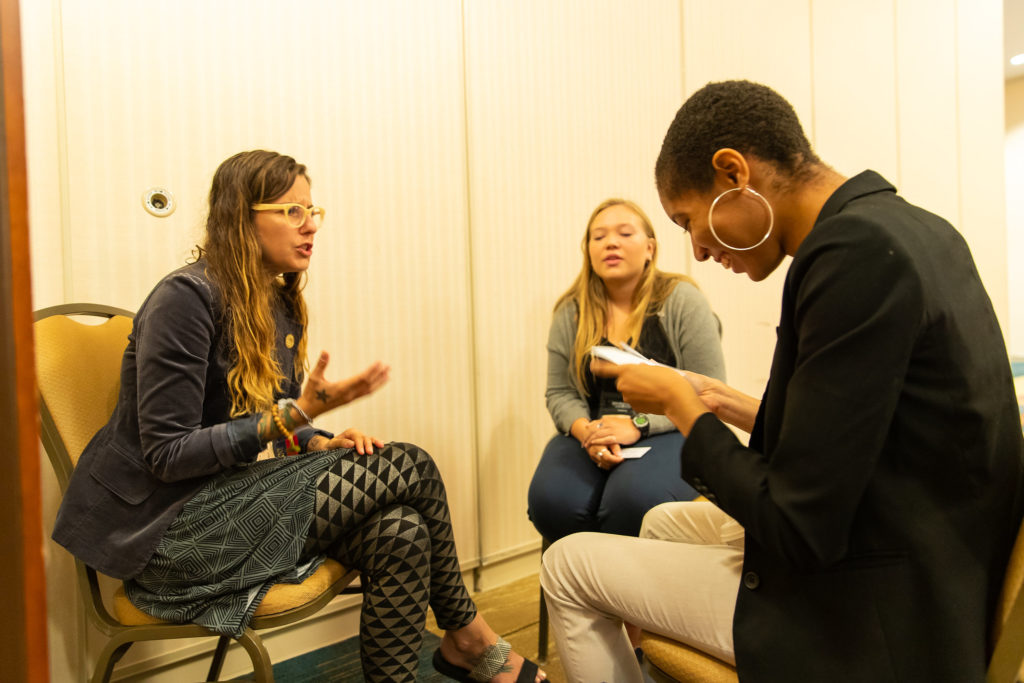Impactful Student Projects & Rural Research Findings

November 8, 2019 – Here’s what we’re reading this week about the issues affecting high-achieving students. College students and public school leaders share meaningful projects with their communities. Also, learn about new findings from research on public flagship institutions and rural education.
Receive the Cooke Chronicle each week in your inbox: Subscribe here.
High-achieving high school seniors can now apply for the Cooke College Scholarship Program, and the Cooke Undergraduate Transfer Scholarship is accepting applications from community college students preparing to transfer to a four-year institution. Both programs provide up to $40,000 per year, as well as comprehensive educational advising and access to the thriving Cooke Scholar community.
Elementary & Secondary Education:
- “9.5 percent of rural students succeeded at AP tests, compared with 19 percent of all public high school students,” writes Education Week about new findings from the Rural School and Community Trust. “But juniors and seniors at rural high schools were more likely than peers in other areas to take dual-enrollment courses.” Our recent report “Small Town, Big Talent” offers best practices for supporting talented rural students.
- Dr. Eric Williams, superintendent of Loudoun County Public Schools, speaks to the Getting Smart podcast about the school division’s project-based learning and commitment to equity. Both initiatives reflect the LCPS mission of empowering students to make meaningful contributions to the world.
Higher Education:
- “Today, only four public flagship universities are affordable for students from low-income families,” reports NPR. The Foundation’s “State University No More” report identified similar challenges for high-achieving students with financial need at these institutions.
- Admissions practices at elite colleges and universities are “limit[ing] the number of openings for highly talented low-income students and students of color.” The Washington Center for Equitable Growth explains why higher education is not always a source of social mobility.
- The Denver Post provides a behind-the-scenes glimpse of how admissions officials read students’ college applications.
- “States can’t overcome enrollment challenges without addressing persistent opportunity gaps identified by race, gender and ZIP code,” states Carlos E. Santiago on the Education Commission of the States blog.
Student Voices:
- Cooke Scholar Paula Salazar is mentioned in The Washtenaw Voice‘s reporting on the institution’s new Intercultural Communications Club. “Salazar’s impact on her community inspired [co-founder Ali Kurmasha] to make a community impact as well.”
- The Daily Bruin highlights a student organization, CruX, that is using neurotechnology to assist people affected by neurodegenerative disorders.
Cooke Foundation Highlights:
- Our scholarship application deadlines are fast approaching. Learn how to apply for the College Scholarship Program for high school seniors and the Undergraduate Transfer Scholarship for community college students on our website.
- The Foundation’s “Opening Doors” report is cited in a press release from EVERFI: “Pressures in high schools nationwide are increasing, and many guidance counselors in under-resourced school districts are tasked with serving as many as 450 students per academic year.”
Social Media Spotlight:
@TheJKCF Undergrad Transfer scholarship changed my life, and it can change yours, too! Apply today! #communitycollege #highered #scholarships https://t.co/9XxS2Z0Tvh
— Monica Cupcake (@MissKupkake) November 7, 2019
Photo header: Cooke Scholars collaborate at Scholars Weekend 2019.